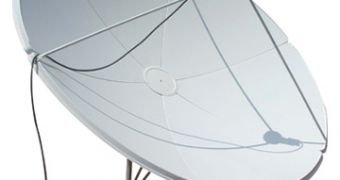Cell-phone networks in the United States' capital have been lately crowded with a whole lot of voice calls, text messages and pictures connected to the President-elect Barack Obama's inauguration. Today is the big day for the country, and, as this day neared, several problems including delays and blocked calls were reported, yet wireless operators stated that all issues were in the accepted range.
Forecasts point towards the fact that millions of mobile phone users will be present in the Washington area for the inaugural ceremonies, which might lead to network jams. Service providers announced that they were taking the right measures so that this wouldn't happen, and also gave users advice on what to do so that the voice and data traffic would keep on running smoothly.
According to Joe Farren, spokesman for CTIA, the wireless industry's trade association, service operators have been adding more capacity to the area's wireless networks, as a means of preventing the crush. Measures operators took include bringing in portable cell-phone switching equipment on trucks ("cell on light trucks," or COLTs) or mobile trailers ("cell on wheels," or COWs).
Although more equipment was added, some problems are still expected to appear. Farren stated that “If 3 or 4 million people show up, and they're all trying to get on the Internet to send pictures, there could be congestion.”
According to NBCWashington.com's Matthew Stabley, the problem might be more serious than operators care to admit. “Sunday night, my cell phone mysteriously lit up at about 11 p.m. with a voicemail message that'd been left two hours earlier. Just before midnight, several text messages sent throughout the evening appeared all at once. Then another text message took a half hour to receive,” he added.
“This is obviously an unprecedented situation, and we’ve been planning for it for months,” said Mark Siegel, spokesman for AT&T Mobility. He stated that the company already increased its staffing levels in the area by more than 60 percent, while also bringing cell-on-wheels stations and backup generators. “Think of this as an entrance ramp to a highway, and when that ramp gets really crowded, people could experience a delay. The laws of physics are at work here. It could be people have occasional difficulty placing a call or getting access to the Internet using their wireless devices,” he added.
According to Jeffrey Nelson of Verizon Wireless, no problems have occurred so far, and he also stated that he would have known if they had been, as he lived only a half-mile north of the White House. Crystal Davis, Sprint spokeswoman, also stated that the company's network acted like anticipated, although the traffic rose over the weekend. “Specifically, on Sunday in the D.C. metro area, we successfully experienced more than double the amount of voice calls and text messages on our CDMA network in comparison to last Sunday,” she said.
“There were some periods of minor call blocking, but this was expected considering the large number of people in the area and the varied nature that people use their phones for today - capturing and emailing videos and photos, using social media sites, and texting a large number of people at once.”
Joe Farren from CTIA said that people caught in a traffic jam should consider sending text messages rather than trying to make voice calls, as messages would need only a few hundred bits of data and they are more likely to reach destination in due time. At the same time, he advised users to save the photos and videos they capture on the Inauguration day to send them later, as soon as the jam easies. In addition, he also cautioned on the possibility of backing up any mission-critical need for voice or data communications with a land line.

 14 DAY TRIAL //
14 DAY TRIAL //